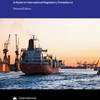UK Clamp Down on North Sea Drilling Tax Holiday
A planned change in the way Britain taxes North Sea drillers exposes the loophole in a system that allowed an industry with annual revenues of 2 billion pounds to pay almost no corporation tax for two decades, prompting accusations that the UK tax authority is falling down on the job.
The change, announced by Finance Minister George Osborne in March, caps the amount a UK company can deduct from profit for leasing drilling rigs from an overseas unit in the same group. The rig-leasing units are typically based in countries where their income is taxed lightly or not at all.
A Reuters review of company accounts, shipping registers and other company statements, shows that such inter-company transactions - known as transfer pricing - have enabled drilling groups in the North Sea to operate almost tax free for 20 years or more, perfectly legally, and with the agreement of Britain's tax authority, Her Majesty's Revenue & Customs (HMRC).
Companies that have benefited from the current rules include Ensco Plc, Rowan Companies Plc and Transocean Ltd, which collectively accounted for over 60 percent of the UK market in 2012.
There is no suggestion of wrongdoing by any of these companies, which declined to comment.
Osborne's change, which will limit the amount companies can deduct from profit for such lease payments to 7.5 percent of the historical cost of the rig, will replace generous deductions calculated on the market value of rigs, which has been soaring.
The amount of money the government expects the tax change to raise is equivalent to around 5 percent of total rig market revenues, which would have raised an additional $600 million from Transocean, Ensco and Rowan alone over the last 10 years. ($1 = 0.5938 British Pounds)
(By Tom Bergin)













